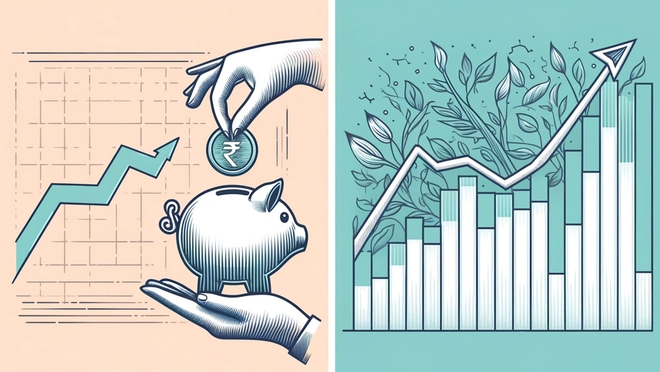 AI-generated image
AI-generated image
Are fixed deposits with small finance banks safer than debt mutual funds? What additional advantages do debt funds have? - Anonymous
Both options are reasonably safe, but debt mutual funds may be viewed as relatively safer due to the benefit of diversification. This does not imply that deposits in small finance banks are risky. The Reserve Bank of India (RBI) closely supervises these banks, and they are granted licences only if they meet safety standards. Additionally, deposits in small finance banks are usually insured by the Deposit Insurance and Credit Guarantee Corporation (DICGC) up to Rs 5 lakh, adding an extra layer of security.
That said, here are some advantages that debt funds enjoy:
- Diversification: Say, you invest Rs 5 lakh in a debt fund. Your investment will be spread across about 50 different debt instruments. Even if one of these instruments defaults, it would likely only affect a small fraction - around 3-4% - of the total portfolio.
- Tax Benefits: Debt mutual funds can help defer tax liability. In mutual funds, taxes are paid when the investment is sold, unlike fixed deposits (FDs), where accrued interest is taxed every year.
- Liquidity: Debt mutual funds offer greater liquidity. Unlike FDs, there is no need to commit to a specific time period. You can withdraw your investments at any time without incurring a premature withdrawal penalty.
However, debt mutual funds do not offer guaranteed returns. But FDs in small finance banks do.
Also read: Modi & 95 per cent Indians love FDs. But there's a better alternative







